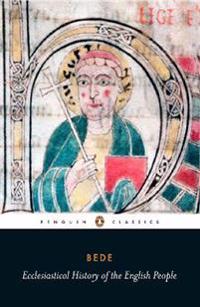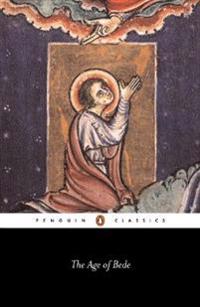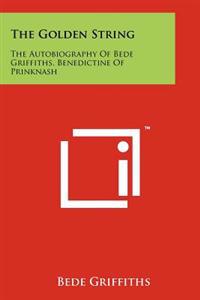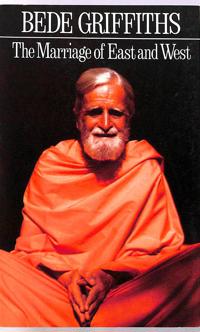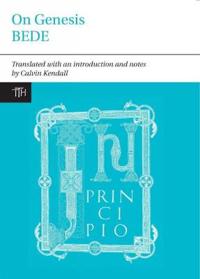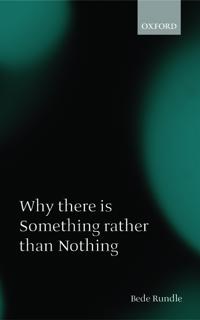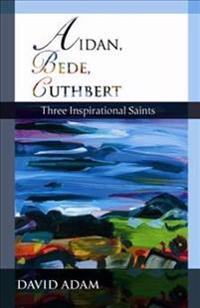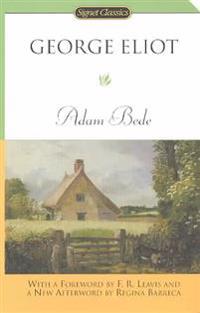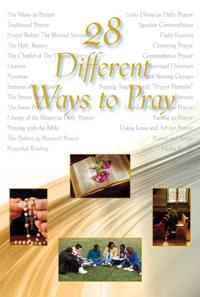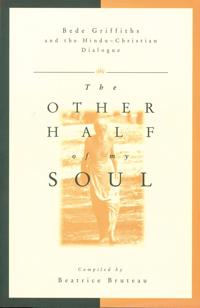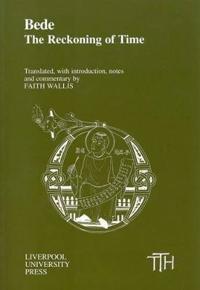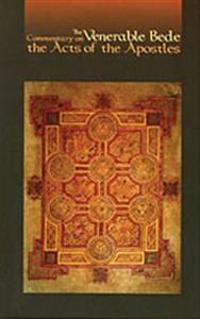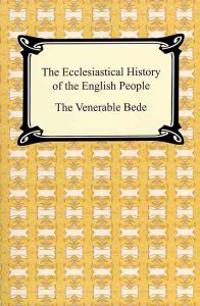Ecclesiastical History of the English People With Bede's Letter to Egbert and Cuthberts Letter on the Death of Bede (Pocket)
avBede, David Hugh (EDT) Farmer, Bede
ISBN: 9780140445657 - UTGIVEN: 1991-05Written in AD 731, Bede's work opens with a background sketch of Roman Britain's geography and history. It goes on to tell of the kings and bishops, monks and nuns who helped to develop Anglo-Saxon government and religion during the crucial formative years of the English people. Leo Sherley-Price's [...]
The Age of Bede (Storpocket)
avthe Venerable Saint Bede
ISBN: 9780140447279 - UTGIVEN: 199802This selection of writings from the sixth and seventh century AD provides a powerful insight into the early history of the Christian Church in England and Ireland. From Bede's Life of Cuthbert and Lives of the Abbots of Wearmouth and Jarrow to the anonymous Voyage of St Brendan a whimsical mixture o[...]
The Ecclesiastical History of the English People/The Greater Ch Ronicle/Bede's Letter to Egbert (Pocket)
avBede
ISBN: 9780199537235 - UTGIVEN: 2008-09-11Starting with the invasion of Julius Caesar in the fifth century, Bede recorded the history of the English up to his own day in 731 A.D. A scholarly monk working in the north-east of England, Bede wrote the five books of his history in Latin. The Ecclesiastical History is his most famous work, and t[...]
The Golden String: The Autobiography of Bede Griffiths, Benedictine of Prinknash (Häftad)
avBede Griffiths
ISBN: 9781258152291 - UTGIVEN: 2011-10The Marriage of East and West (Pocket)
avBede Griffiths, Dalai Lama XIV, Bede Griffiths
ISBN: 9780972562713 - UTGIVEN: 2003-09Bede Griffiths was a Benedictine monk who achieved worldwide recognition for his pioneering efforts to bridge the great traditions of Christian and Hindu faith. He advocates a global spiritual friendship, rather than a global religion, cultivating respct for each other's spiritual practices.[...]
On Genesis (Pocket)
avBede, Calvin B. (TRN) Kendall, Bede
ISBN: 9781846310881 - UTGIVEN: 2008-05This is the first English translation of the Venerable Bede's commentary on the book of Genesis. Dealing as it does with the biblical account of the creation of the world and of mankind, and of mankind's fall from grace and exile into the life of time, "On Genesis" offers essential insights into Bed[...]
Adam Bede (häftad)
ISBN: 9780140436648 - UTGIVEN: 2008-06Carpenter Adam Bede is in love with the beautiful Hetty Sorrel, but unknown to him, he has a rival, in the local squire's son Arthur Donnithorne. Hetty is soon attracted by Arthur's seductive charm and they begin to meet in secret. The relationship is to have tragic consequences that reach far beyon[...]
Adam Bede (Pocket)
avGeorge Eliot
ISBN: 9780199203475 - UTGIVEN: 2008-05-01Pretty Hetty Sorrel is loved by the village carpenter Adam Bede, but her head is turned by the attentions of the fickle young squire. His dalliance with the dairymaid affects the lives of many in their small rural community. This new edition of Eliot's pioneering classic of social realism uses the d[...]
Why There is Something Rather Than Nothing (Pocket)
avBede Rundle
ISBN: 9780199288663 - UTGIVEN: 2006-05Why should there be anything at all? Why, in particular, should a material world exist? Bede Rundle advances clear, non-technical answers to these perplexing questions. If, as the theist maintains, God is a being who cannot but exist, his existence explains why there is something rather than nothing[...]
Aidan, Bede, Cuthbert: Three Inspirational Saints (häftad)
ISBN: 9780281057733 - UTGIVEN: 2006-03Explores the lives and stories of Aidan, Bede and Cuthbert. After an introduction which tells appropriately of David Adam's ordination in Durham Cathedral, this work contains four chapters on each of them.[...]
Adam Bede: 150th Anniversary Edition (Pocket)
avGeorge Eliot, Regina Barreca, F. R. Leavis
ISBN: 9780451529428 - UTGIVEN: 200408Adam Bede is a hardy young carpenter who cares for his aging mother. His one weakness is the woman he loves blindly: the trifling town beauty, Hetty Sorrel, whose only delights are her baubles-and the delusion that the careless Captain Donnithorne may ask for her hand. Betrayed by their innocence, b[...]
Times of Bede: Studies in Early English Christian Society and its Historian (Övrig)
avPatrick Wormald
ISBN: 9780470693377 - UTGIVEN: 2008-04-30Times of Bede: Studies in Early English Christian Society and its Historian (Inbunden)
avPatrick Wormald
ISBN: 9780631166559 - UTGIVEN: 2006-09-30The Venerable Bede (Pocket)
avArthur (EDT) Holder, Benedicta (FRW) Ward, Arthur (EDT) Holder
ISBN: 9780809147007 - UTGIVEN: 2011-03The first English translation of Bede's allegorical commentary On the Song Songs, along with selections from his homilies and the Ecclesiastical History, an introduction to his spirituality, and notes.[...]
The Other Half of My Soul: Bede Griffiths and the Hindu-Christian Dialogue (Häftad)
avBeatrice Bruteau, His Holiness the Dalai Lama Tenzin Gyats
ISBN: 9780835607179 - UTGIVEN: 199605Bede
ISBN: 9780853236931 - UTGIVEN: 1999-04From the patristic age until the Gregorian calendar reform of 1582, computus - the science of time reckoning and art of calendar construction - was a subject of intense concern to medieval people. Bede's The Reckoning of Time (De temporum ratione) was the first comprehensive treatise on this subject[...]
The Venerable Bede: Commentary on the Acts of the Apostles (häftad)
ISBN: 9780879079178 - UTGIVEN: 1989-01In his monastery in a remote corner of Europe, the grandson of Anglo-Saxon pagans quietly spent his life studying and writing, passing the wisdom of christian antiquity on to generations of latin readers. And in the process, this most learned and the least proud of men came to be acknowledged as a D[...]
Return to the Centre (Häftad)
avBede Griffiths
ISBN: 9780972562720 - UTGIVEN: 200309This work explores the key doctrinal themes of sin, redemption, death, resurrection and the divine mystery. The expression of these as they are found in Christianity, Hindmuism and Buddhism lead him to what he terms "The Centre", where we can find the essence of all faith.[...]
Adam Bede (CD-bok)
avGeorge Eliot, David (NRT) Case, George Eliot
ISBN: 9781400108947 - UTGIVEN: 2008-12Bede and the End of Time (Inbunden)
avPeter Darby
ISBN: 9781409430483 - UTGIVEN: 2012-01Bede (c. 673-735) was the leading intellectual figure of the Anglo-Saxon Church, and his writings had a profound influence on the development of English Christian thought. Among the many issues he wrote about, eschatology - the study of the day of judgment and the end of time - was a reoccurring the[...]
The Ecclesiastical History of the English People (Häftad)
avVenerable Bede
ISBN: 9781420930474 - UTGIVEN: 2008-01

